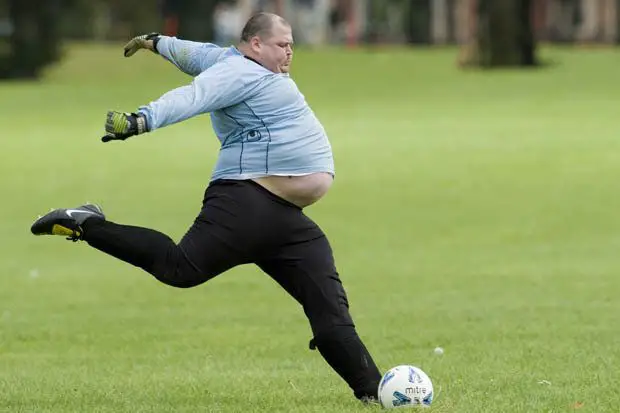There is a misconception among people that all athletes are after reducing weight or looking for ways to shed those extra pounds. However, gaining a healthy weight is a must-have in a soccer player’s life to succeed in the game. The drill itself is quite tiring and places significant stress on the player’s body which increases the need for better nutrition. Plus, soccer players train multiple hours a day to stay in shape and practice so they can deliver a worth-watching performance.
So, let’s dig deeper into the topic and discover the ways a soccer player should and should not gain weight.
Consume More Calories Than You Burn
The first thing is that in order to gain weight, you simply need to consume more calories than you burn on the field. When we talk about soccer, we know that the game is all about sudden movements, sprinting, stress, and changing directions every second. All these factors play a major role in burning calories.
So, if you want to gain weight, you need to have an estimate of how many calories you are burning on the field during the play and the practice. You can use trackers or smart watches for this purpose. When you have an estimated knowledge, consume more calories than that amount.
How to Gain Weight as a Soccer in a Healthy Way
Let’s delve into a few strategies and food items that will help you gain the weight goal of your dreams:
Set a realistic goal:
If you are a professional athlete, we recommend that you sit with your coach and narrow down a number that will be your ideal weight. Later on, you can set a short-term and long-term plan to achieve that ideal weight.
Remember not to fall for a rapid weight gain trap because it’s exactly a trap that will fill your body with unhealthy fats and will slow you down on the field.
Gain weight through nutritious meals:
When we say that you should consume more calories than you burn, we do not say that eat everything that you see.
Nahhh, also, forget about the Big Mac deal you are thinking about…
Those meals carry around 2000 plus calories and are filled with lots of unhealthy fats that no doubt will help you put on weight but, it will slow you down. What we are saying is to eat healthy and nutritious meals throughout the day.
Have snacks in your bag:
In case you are an athlete and on an agenda to put on weight, do not spend the day without eating for more than three hours straight. You better keep a snack handy when you are out for practice and can not have a proper meal.
No, the chips bag you bought earlier does not count as an athlete snack.
The given are a few healthy options for snacks:
- Peanut butter and jelly sandwiches
- Protein drinks or bars
- Fruits
- Nuts
- Yogurt
Pre-training and post-training snacks:
Apart from general snacks also get an insight into proper pre-training and post-training snacks that you can have. And nope, french fries are not a healthy post-training snack. For better understanding, we have made a list for you to choose wisely.
Pre-training snacks:
- Greek yogurt with berries
- Banana with nut butter
- Energy bars
- Avocado
- Oatmeal with milk
- Fruits
- Pre-workout drinks with additional stimulants
Post-training snacks:
Weight train for at least three days a week:
If you want to build leaner and healthier muscles, visit the gym thrice a week to do weight training. You can do full-body workouts and split training to focus on the upper, lower, or targeted areas of your body. Slowly increase the intensity and progression of your workouts.
Drink lots of water:
By water, we mean literal water and not 70% water in the soda can. If you are an emerging athlete, no matter how much you love caffeine or sodas, remember that water is always the healthier option. So, apart from keeping a granola bar in your backpack, do not forget to bring your water bottle to the practice field as well.
Proteins and carbohydrates:
Eating proteins is necessary for muscle build-up, and carbohydrates are essential for long field days. When you are on your journey to gain weight, incorporate both of these into your diet. Look at the given examples of good protein and carbohydrate sources.
Proteins:
- Chicken breast (a soccer’s best friend)
- Egg whites
- Tofu and cottage cheese
- Greek yogurt
- Salmon
- Beans and legumes
Carbohydrates:
- Brown rice
- Oats
- Sweet potato
- Vegetable and fruits
- Whole grain pasta
Remember to consume smaller portions throughout the day instead of eating large portions at one time.
Conclusion
To conclude, we can say that gaining a healthy weight is a whole process and requires some basic steps that you should follow. If you follow the above-mentioned tips and also consult with your coach or professional, it will take you a few weeks to actually see the results. However, seeing the changes in your body will be worth the hassle you will go through.
Have a happy weight-gaining journey!




